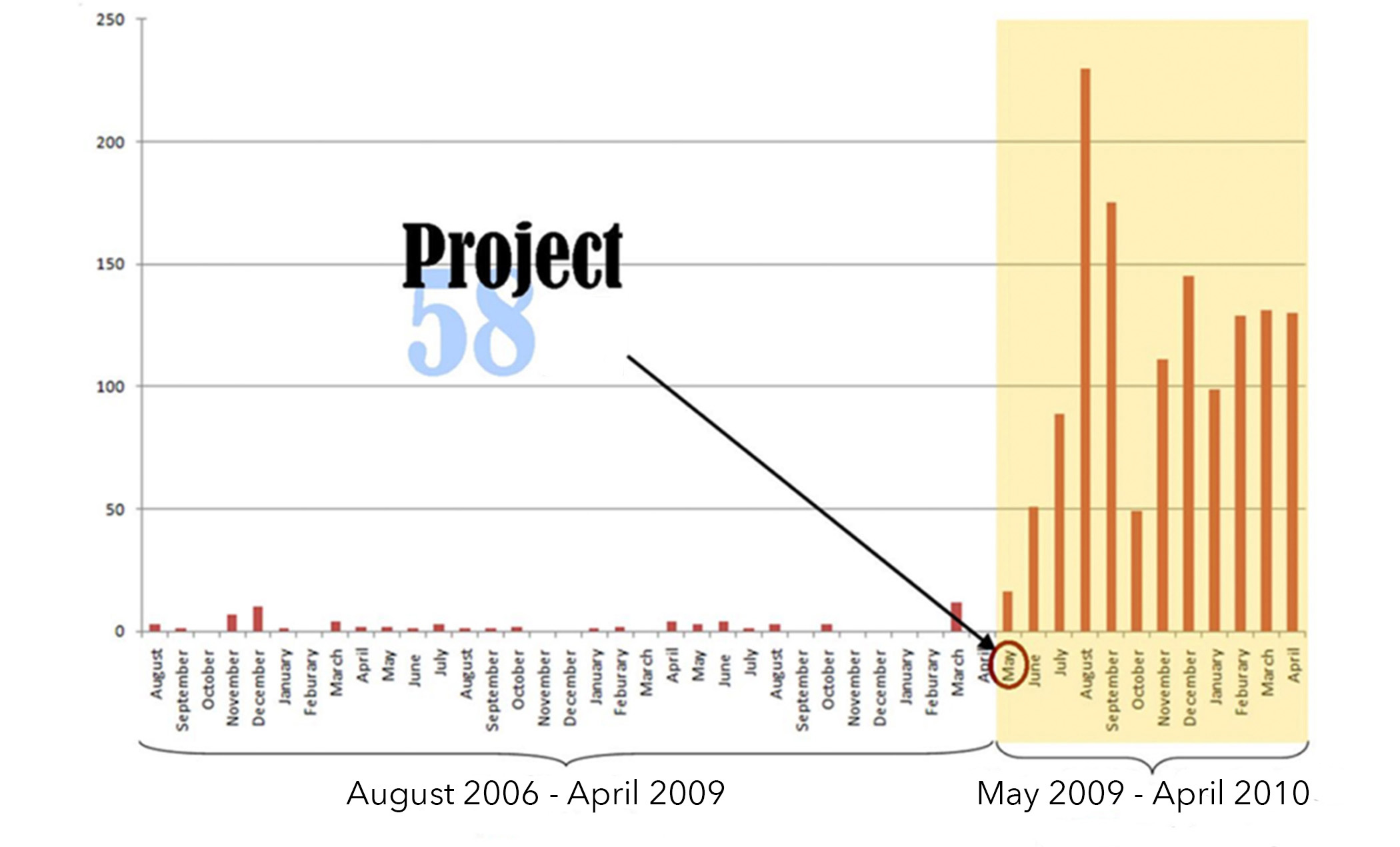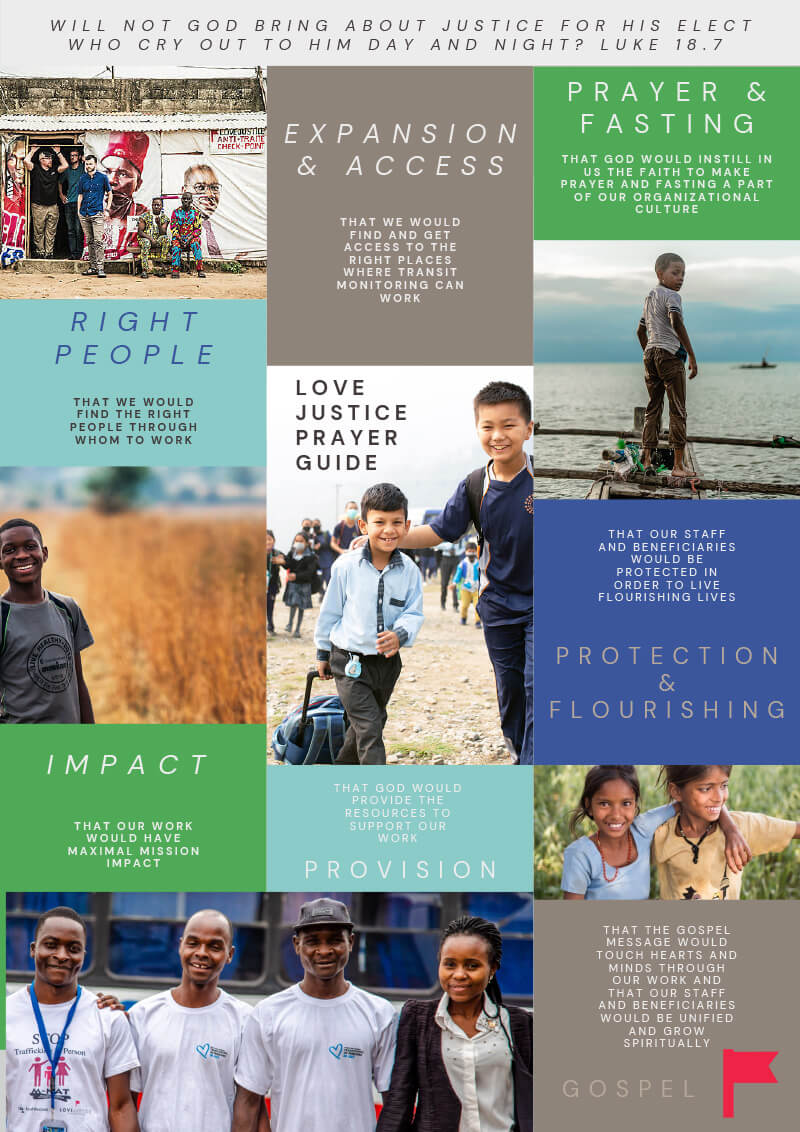Lent began yesterday! As millions of Christians around the world collectively join in this ancient tradition, we want to invite you to join us in praying and fasting to unlock more justice in the fight against human trafficking.
What is Lent?
Lent is a 40-day period of prayer, fasting, and generosity beginning on Ash Wednesday (March 5 this year) and ending on Easter (April 20 this year). It is traditionally observed by Christians to commemorate Jesus’ 40-day fast in the wilderness (Matthew 4:1–11) and to prepare to celebrate His resurrection after death on the cross. The tradition was formalized during the First Council of Nicaea in AD 325 but had likely been in practice long before that.
What is fasting?
Traditionally, biblical fasting means abstaining from all foods for a period of time for some spiritual benefit. It is nearly always associated with prayer or otherwise drawing near to God.
What is the purpose of fasting?
People in the Bible commonly fasted for God’s guidance, protection, forgiveness, or victory.

- The Israelites fasted after losing in battle, and then won the next day (Judges 20).
- They fasted for safety on their journey from exile in Babylon back to Jerusalem (Ezra 8).
- The city of Nineveh fasted in repentance when Jonah brought them God’s word, and God relented and did not bring destruction on the city (Jonah 3).
- Paul and Barnabas fasted as they appointed church leaders (Acts 14).
Perhaps the most powerful example of fasting is in Jesus’ own life, fasting 40 days in the wilderness in preparation for ministry (Matthew 4). Before Jesus would begin His three years of ministry proclaiming the coming kingdom of God and working many miracles, He battled against the kingdom of earth to conquer every human temptation and desire, depending on the Father and Holy Spirit above all else.
Nikki Still, Love Justice’s spiritual director, described the purpose of fasting this way:
“Fasting has been termed by some seasoned fasters as ‘the atomic bomb’ of spiritual warfare and one of the most important practices of growing in intimacy and love for Jesus. Something powerful happens when we forgo the earthly and temporal out of desire for Jesus and the advancement of His kingdom on earth through fasting. As we fast, we make way for more of Jesus and grow our spiritual appetite and sensitivity to His voice. We train our bodies in obedience and grow in power over Satan’s voice and temptations.”
By denying yourself something that you desire, perhaps something you have depended on to fulfill various needs, you align yourself more closely with the desires of God and increase your dependency on Him. Fasting gives the Holy Spirit more power in your life as you submit your earthly desires to Him. As Jesus quoted from Deuteronomy while He fasted, “Man does not live by bread alone, but by every word that comes from the mouth of the Lord” ––Deuteronomy 8:3 and Matthew 4:4.
How should we fast?
Fasting is more than simply not eating. God rebuked the Israelites when they fasted but lived in blatant disobedience, oppressing one another. He speaks about the power of fasting when practiced alongside sacrificial love.
“Is not this the fast that I choose: to loose the bonds of wickedness, to undo the straps of the yoke, to let the oppressed go free, and to break every yoke? Is it not to share your bread with the hungry and bring the homeless poor into your house; when you see the naked, to cover him, and not to hide yourself from your own flesh?”—Isaiah 58:6–7
Sacrificial love is commonly incorporated into fasting through praying for others, giving generously, and practicing simple kindness.
If you read on, Isaiah goes on to list the blessings that come with fasting in this way:
 Healing.
Healing.
Answers from God.
Contentedness.
Guidance.
Satisfied desires.
Strength.
Refreshment.
Restoration.
We’d encourage you to read the whole chapter on your own for greater context!
Fasting is hard but well worth it! These are some pretty significant blessings, are they not? What would you give to have the most painful thing you are dealing with right now be transformed by one of those blessings?
The power of fasting
In the history of Love Justice, we’ve seen direct correlation between periods of corporate fasting and major breakthroughs. In 2009, facing a multitude of setbacks, the staff at Love Justice decided to fast and pray together, inspired by the Isaiah 58 scriptures mentioned above.
“Within weeks we went from one station to 10, from 61 intercepts in three years to more than a 100 a month,” said John Molineux, Love Justice’s founder and CEO.

Since then, prayer and fasting have remained an integral part of Love Justice and continue to correlate with dramatic breakthroughs.
The team in Kenya, at one time unable to break the threshold of 50 intercepts in a single month, began praying and fasting weekly for breakthrough. They felt challenged to believe for 300 intercepts in a single month. They not only hit their goal of 300, but their impact soared all the way to 627 intercepts in a single month in July of 2024!
We want to continue to see dramatic breakthroughs for human trafficking victims. We believe that every life is beautiful and worth fighting for. No one should have their freedom and dignity taken from them. We want to see the bonds of slavery in our world loosened and rendered powerless; we want to see the oppressed walk free.
Practical things about fasting:
Before getting into how you can participate, let’s cover some practical details.
First, although fasting is traditionally a practice of abstaining from food, please heed caution and wisdom with this. There are a multitude of health conditions or working conditions that could make traditional fasting very dangerous. Seek guidance from a medical provider if you are unsure.
There are different ways to fast. Many people choose to give up a particular kind of food or drink rather than not eating anything. Common examples of this are meat, sweets, caffeine, and/or alcohol. Many people may instead or in addition choose to fast something that takes up a lot of their time, such as scrolling on social media, watching TV, or playing video games.
 If you want to fast more traditionally, only drinking water, you might choose to fast one meal per week or one day per week.
If you want to fast more traditionally, only drinking water, you might choose to fast one meal per week or one day per week.
Note that Sundays are “off” days during Lent, meaning you can take a break from fasting.
And finally, it’s important to not just cut something out, but add something in—prayer and giving. Use the time and money you save from fasting to draw nearer to God, to seek His heart and practice generosity.
Intrigued, but still unsure? Check out these other resources on biblical fasting:
- Articles from Redeemer Presbyterian Church by Tim Keller
- Practicing the Way by John Mark Comer (fasting series)
- The Ministry of Intercessory Prayer by Andrew Murray
- Celebration of Discipline by Richard Foster
An invitation to pray and fast with us during Lent
This Lent, we want to invite you to join us in praying and fasting to end human trafficking and to free those currently in bondage in modern slavery. Here’s how you can do that:
- Choose something to fast and set parameters for it.
- Commit to praying over our core prayer points. (pictured below)
- Sign up to receive more specific and current prayer requests from our teams around the globe, and commit to praying for those too. (button below)
- Consider donating the money you save fasting to Love Justice. For example, if you fast buying a latte every day, you can donate that $5–$10. If you fast from a meal once a week, donate the money you would have spent on that. By doing this, you will quite literally turn your fast into freedom for trafficked individuals around the world.
- Watch what God will do! We will send updates detailing the breakthroughs happening in the field, reminders to pray and meditate on scriptures, and testimonies and encouragement to keep going.

Originally published February 15, 2024
*All data and statistics current at the date and time of publishing. Names changed and some specific locations excluded for privacy and security purposes. Images are representative and do not picture actual victims.
-1.png?width=500&height=500&name=LJI_MAINLOGO_WhiteBackground%20(1)-1.png)
.png?width=1080&name=Untitled%20(600%20x%20400%20px).png)




/bimala_feature_blog.webp)

/boy_girl_asia_streets.webp)






/young_woman_asia_smile.webp)




/woman_africa_beige_sweater.webp)
-1.jpg)


/africa_benin_truck.webp)




Post a comment